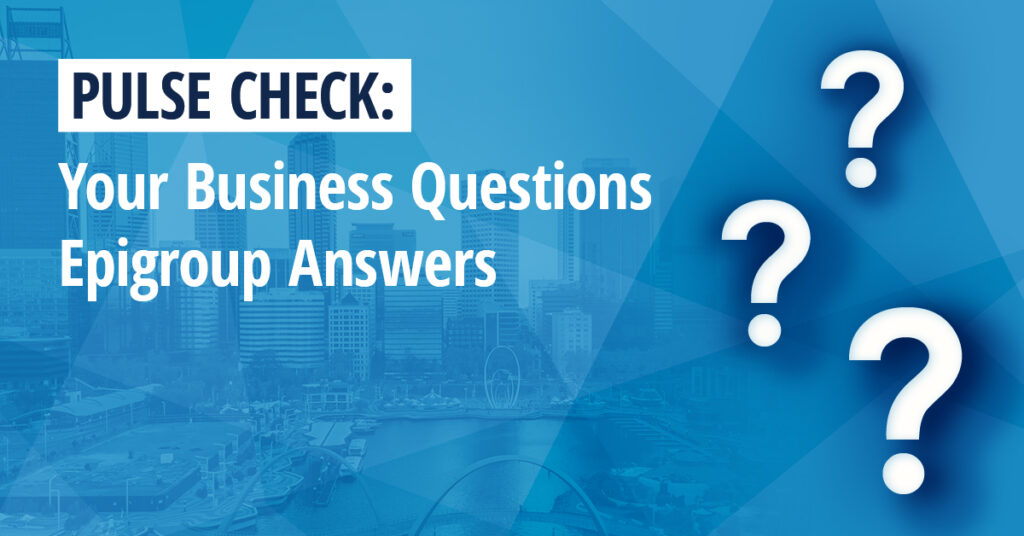If psychosocial hazards aren’t managed, they can significantly impact workplace interactions and can escalate into mental health issues and bullying, according to CCIWA HR & Workplace Relations Consultant Cristina Iacob.

At CCIWA’s HR Live Spring Update on November 22, Iacob explained to about 100 human resources professionals the importance of managing psychosocial hazards in the workplace and provided tips on how to minimise risks during redundancy, performance and investigation conversations.
“Psychosocial hazards typically create stress which – if ignored or left unmanaged – can lead to psychological harm and, in some cases, physical harm,” she said.
These hazards are typically linked to work-related stress and more serious health issues such as depression, anxiety, post-traumatic stress disorder and heart disease.
Psychosocial risk in redundancy conversations

CCIWA HR & Workplace Relations Consultant Cristina Iacob.
To mitigate psychosocial risk with redundancy conversations, Iacob said it’s essential the process is handled with care and empathy.
“The manner in which redundancies are managed before, during and after communication can significantly influence workplace culture,” she said.
These steps can soften the impact of redundancies on departing and remaining employees:
- Consider the significant financial and emotional strain that job loss brings for the employee.
- Maintain transparency with clear communication, adequate notice and face-to-face discussions to show respect, address concerns and provide support.
- Adhere to legislative rules, including consultation obligations, exploring alternatives and allowing a support person in discussions.
- Offer support services like EAP, counselling and additional time to help employees manage the transition.
- Support remaining employees by maintaining transparency, providing EAP access, and highlighting opportunities for internal growth.
Addressing performance and conduct
“When employees see feedback as a judgment of their worth, it can lower confidence, trigger defensiveness and strain relationships. This may escalate stress, causing unresolved conflicts, tension and psychosocial risks,” Iacob said.
The below strategies can help employers deliver feedback constructively, supporting employee development, maintaining morale and fostering a positive work environment:
- Prepare and set a positive tone: acknowledge their contributions and express your commitment to their development.
- Be specific and objective: focus on specific behaviours or outcomes, using concrete examples. Frame feedback based on observed actions and their impact, avoiding personal judgments.
- Encourage two-way communication: invite the employee to share their perspective.
- Offer support and resources such as training or mentoring and set goals.
- Balance feedback with positive reinforcement by highlighting the employee’s strengths and their ability to improve.
- Maintain empathy and respect, showing appreciation for their efforts.
Investigation process conversations
“Workplace investigations can be a significant source of stress and anxiety for employees and can also create psychosocial risks for employers,” Iacob said.
To help manage investigation conversations, employers can:
- Act promptly, as delays can raise doubts about the seriousness of the issue.
- Communicate with all people involved to prevent misinformation and rumors, and to maintain trust in management.
- To maintain impartiality and to avoid conflict of interest, consider hiring external investigators.
- Support those involved through regular communication to alleviate feelings of isolation, stress and helplessness.
- Consider all relevant facts, including mitigating circumstances and the conduct of all parties, to ensure fair conclusions and maintain workplace trust.
- Keep confidential documentation to prevent unnecessary stress and uphold the investigation’s integrity.
CCIWA hosts training courses throughout the year on Mental Health in the Workplace: Managing Psychosocial Hazards - register here.
Our training solutions are suited to your workplace needs. Find out more via [email protected] or on (08) 9365 7500.
Our Employee Relations Helpline is also available to respond to your questions on (08) 9365 7660, or via [email protected].












